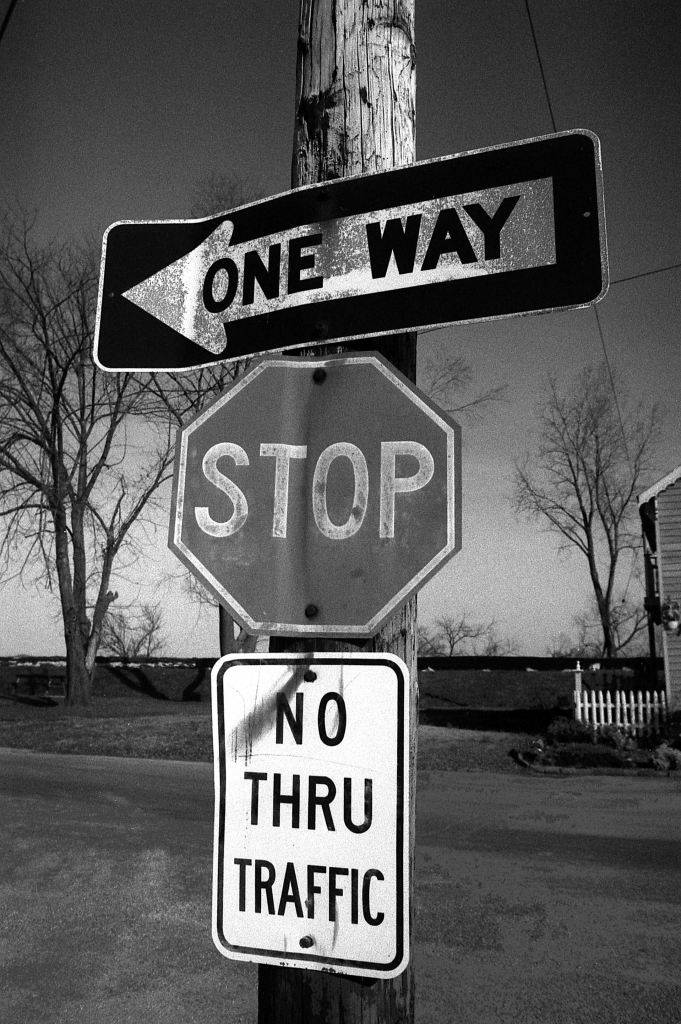I didn’t know Samuel R. Delany was black until I’d read damn near all his books, a project that took some time. I’m talking about a revelation that came sometime in the early 80s. Now, you might think I was a bit of an idiot for taking that long, but I had zero involvement in fandom prior to 1982 and if there were no jacket photos of authors I had not clue one concerning the first thing about them. (Mainly because I actually didn’t much care; it was the work that concerned me, not the celebrity.)
Still, you’d think that the original cover illustration for Heavenly Breakfast, with a portrait of Chip, would have clued me in. But it didn’t. Not because I assumed he was white (or, later, straight), but that I didn’t care. One of my favorite writers from the big trunk of books my mother had kept from her days in the Doubleday Book Club was Frank Yerby. One of them had an author photo on the back so I knew he was African American, but it didn’t register as noteworthy because I honestly didn’t think it was important.
Mind you, I’m not saying I had no racist attributes. Like any white boy growing up in St. Louis, I had my share of prejudices (and I’ve written about some of them here ) but I was always something of an outlier and a good deal of my prejudice had little to do with skin color and mostly to do with what I perceived as life choices. It never occurred to me blacks (or any other ethnic category) couldn’t do anything I could do if they wanted to. (I was young and stupid and the lessons of 20th Century institutional discrimination had yet to really sink in. Bear with me.) But I will confess that unless it was put before me directly I sort of defaulted to the assumption that most writers were white.
It didn’t bother me when I found out otherwise.
That was the world I lived in and while I question many assumptions I didn’t question all of them—that can get exhausting and perhaps even a little counter-productive if that exhaustion leads to a desire to stop worrying about everything.
But as I grew older, anytime I discovered a new writer I liked was other than my base assumption, I had a little frisson of delight. I never once felt threatened, it never occurred to me to feel besieged or that I was in any danger of losing something. You can do that when you belong to the dominant culture. You know, in the very fiber of your being, that these other folks pose no such threat to you and the hegemony in which you live. You can be…gracious.
Which is kind of an ugly thing when you think about it. Why should I have to be gracious just because somebody who doesn’t fit a particular profile does something other members of my culture don’t think they (a) can or (b) should? Gracious implies permission. Gracious implies special circumstances. Gracious implies accommodation, as if you have the authority to grant it. Gracious, in this context, means power. (Everyone interested in this should read Joanna Russ’s excellent How To Suppress Women’s Writing to see how the process of marginalization and delegitimizing works.)
As it turned out, I have both been reading diversely and reading based on false assumptions about merit for a long time, but it was a problem, once I realized it, caused me no pain other than momentary embarrassment. It was an opportunity to expand my reading.
Sure, it opened me to works which called certain attitudes with which I’d lived my whole life into question. But, hell, that’s one of the primary reasons I read. What’s the point of reading nothing but work that does little more than give you a pleasant massage? Those kinds of books and stories are fine (and frankly, I can get plenty of that from movies and television, I don’t have to spend valuable hours reading things that feed my biases and act as soporific), but they should only be breathers taken between books that actively engage the intellect and moral conscience. Which books tend to piss you off on some level.
Depending on how pissed off you get, this may be a good way of finding out where perhaps you need to do a little personal assessment. However, that’s up to the individual. You can just as easily choose to revel in being pissed off and take that as the lesson.
“But reading stories is supposed to be entertainment. If I want edification I’ll read philosophy.”
Two things about that. Yes, fiction is supposed to be entertaining. If it isn’t, it’s not very good fiction. But there are two meanings to the word “entertain” and while one of them is about sitting back and enjoying a ride the other is more nuanced and has to do with entertaining ideas, which is less passive and, yes, edifying. Because the second thing is, just what do you consider reading fiction if not reading philosophy? Guess what, if you read a lot of fiction, you’ve been reading philosophy, at least on a certain level. Because philosophy is, at base, an examination of how we live and what that means and all stories are about how people live and what it means to them. (This is one of the ways in which fiction and essay often rest cheek-to-cheek in terms of reading experience.) The deeper, the meatier the story, the more philosophical.
Which is why some books become cause celebrés of controversy, because everyone gets it that they’re talking about life choices. Catcher In The Rye, To Kill A Mockingbird, Huckleberry Finn… how are these novels not fundamentally philosophical?
Which is why the idea of telling the truth in fiction has real meaning. “How can a bunch of made up stuff—lies—tell the truth?” A simpleminded question that assumes fact and truth are somehow the same. Yes, they’re related, but truth is not an artifact, it is a process and has to do with recognition. (Do you sympathize with the characters? Yes? Then you have found a truth. You just have to be open to the idea. It’s not rocket science, but it is philosophy.)
The most important factor in hearing a truth is in listening. You can’t listen if you shut your ears. And you can’t learn about a previously unrecognized truth if you keep listening to the same mouths, all the time. You have to try out a different tongue in order to even expose yourself to a new truth. Furthermore, you can never find the point of commonality in those alien truths if you don’t pay attention to what they’re saying.
Commonality seems to disturb some people. Well, that’s as it should be. Commonality is disturbing. It’s mingling and mixing, it’s crossing lines, violating taboos, and reassessing what you thought you knew in order to find out how you are like them. Commonality is not one thing, it’s an alloy. More than that, it’s a process. Because as you find commonality with the foreign, the alien, the other, they’re finding commonality with you.
Which brings me to the main subject of this piece, namely the challenge put forth by K. Tempest Bradford to read something other than straight white male authors for a year. Go to the link and read the piece, then come back here.
Okay. Contrary to what the nattering blind mouths of righteous indignation have been saying, Tempest is NOT saying give up reading what you’ve always liked. She’s suggesting it would be worthwhile to try this for a year. How is this any different than someone saying “Maybe it would be a good thing to read nothing but history books for a year” or “I’m taking this year to read nothing but 19th Century novels”? Like any book club or reading group, she’s set the parameters of a challenge. Take it on or go away. Why the need to vent OWS* all over her?
I have my theories about that and others have mentioned some of them, but what I want to know here is why certain people take this as an attack on their “culture” and condemn the idea as bigoted when, at worst, it’s just push back against an unexamined set of assumptions that have prevailed all along?
What troubles me in all these reactions as well is a certain hypocrisy coming from my own group, namely science fiction writers. We have felt under siege for decades by the so-called mainstream—judged, dissed, ill-regarded, consigned to the purgatory of “genre” and not invited to all the good parties—and we have, collectively, been justifiably irked by attitudes which, we believed, would evaporate if you people would just loosen up and read some of the work you’re putting down! Look in a mirror, folks.
(A more reasonable objection to Tempest is expressed here by Laura Resnick, and she addresses part of the problem I began this essay with, namely that normally one has to go out of one’s way to find out personal information about the authors in question in order to do what she’s suggesting, and that does have the danger of displacing the merit of the work with an over-reliance on others factors. However, it’s not as if this is (a) not a problem being talked about or (b) in any way easily addressed.)
There’s also an element of rage politics in this which is stunning in its idiocy. It’s the way our current culture works, that everything can be made into a cause to be outraged. “I prefer XYZ nailclippers to any other.” “XYZ nailclippers are made in China! Preferring them shows you to be an anti-American libtard self-loathing traitor! True Americans use ABC nailclippers!”**
Really? Are we so sensitive anymore that we can’t allow for a little more room on the very wide sofa we inhabit for a difference of opinion and maybe a little challenge?
The fury over last year’s SF awards generated by a certain group over what they perceived as an assault on their definition of science fiction by the evident expansion of what is considered good SF is indicative of a kind of entrenchment I would have thought anathema to science fiction. It’s too easy to read the diatribes and think the whole SF community is in uproar over something it has been striving to overcome for lo these many decades. This is the problem of the megaphone effect.
But what Tempest and others are talking about goes well beyond the SF world. There is a problem with recognition of non-approved viewpoints and faces. The ocean of publishing is constantly a-roil, so depending on where you look it may be hard to see, and if you’re committed to seeing only what you expect then you can very easily miss it in the chop. But the question is, how does it harm anyone to consider the voices of others as relevant and entertaining as what you’re used to hearing? Why does the prospect of change so frighten people who have the intellect to know better? Why is it necessary to tag someone a bigot when they suggest that maybe the homogenization of our culture is a bad thing?
I’d like to argue that you have nothing to fear, that there isn’t anything inherently wrong with White Culture, but just writing that line brings me up to the chief problem—what White Culture? I mean, we have to assume, don’t we, that there is one thing that’s being described by that? It’s really as erroneous and useless a descriptor as Black Culture. Which one? The reality is, in both cases, they only exist as a consequence of definitional tactics that seek to reduce experience into an easily codifiable box that leaves out more diversity than it could possibly include. I am white, and in terms of writing, I can say pretty confidently that, say, Jonathan Franzen does not represent my “culture.” It’s kind of an absurd statement on the face of it. Attitudinally, I have almost nothing in common with him, or the kind of writing he represents, or the particular viewpoint he deploys.
White Culture is only relevant in terms of social power and its exercise and in that sense I can claim affiliation with it by default. I can’t not be part of it because that’s how the boundaries are set.
But I don’t have to exemplify it in my own person.
This is what reading has given me—the ability to access experiences not my own. And, by extension, understand that all experiences are not the same even as they share certain common traits. And the entire purpose and value of deep reading is to be More. More than what my context prescribes. More than what my social situation allows.
So why would I feel threatened by Tempest’s challenge? I might not stick with it, but I do not see her as claiming the work she would have me read is somehow superior to what I normally would, nor is she claiming that the white male work to which she refers is all intrinsically bad. What she is not saying is as important as what she is. She’s basically challenging us to do what we would normally do anyway, with one more filter in place to select for experiences outside our comfort zone.
On the one hand, it’s kind of “well, why not?” proposition. What could it hurt?
On the other, it’s a serious attempt at overcoming the bunker mentality that seems to be the norm these last couple decades. Retrenchment is the order of the day for some folks. Any suggestion that the walls of the bubble in which people live are perhaps insufficient for the problems of the world gets treated to bitter denouncements. It’s tiring. It’s destructive.
No, Tempest is not being a bigot. She prescribing a way—modest though it may be—of overcoming bigotry.
It’s an invitation. She’s not being gracious about it. She’s being welcoming.
___________________________________________________________________________
*OWS—Oppressed White Spleen. If “they” can lob acronyms around to make their point, so can I.
**Yes, much of it is exactly that idiotic. We find ourselves in otherwise casual interactions often forced to take do-or-die political positions over the most inane matters all in service to sorting out who’s in our group and who’s out. I am talking about extremes here, but it pervades everything. I recall a conversation once where the efficacy of ethanol was being discussed and when I brought up the actual inefficiency of it, both chemically and economically, the response I got had to do with energy independence and patriotism. There was no room for the vast world of money or lobbies or special interests or alternatives. I was either in or out. We’ve reduced much of our normal discourse to the parameters of a football game.










